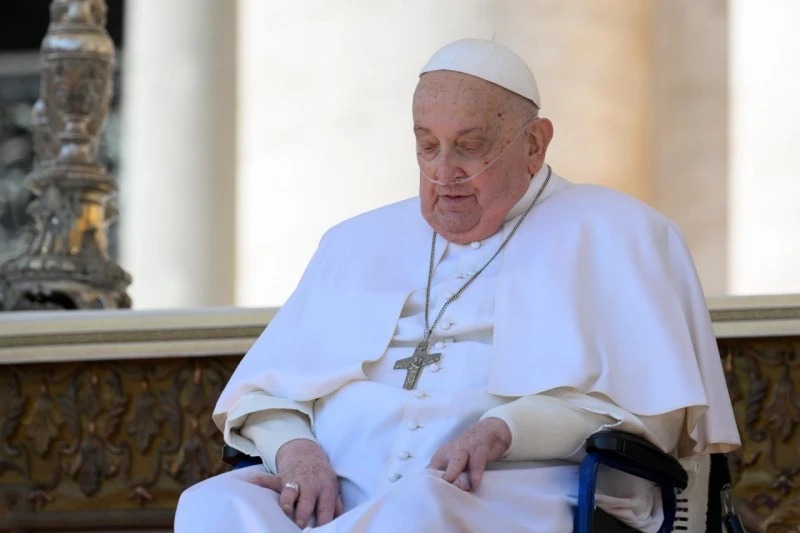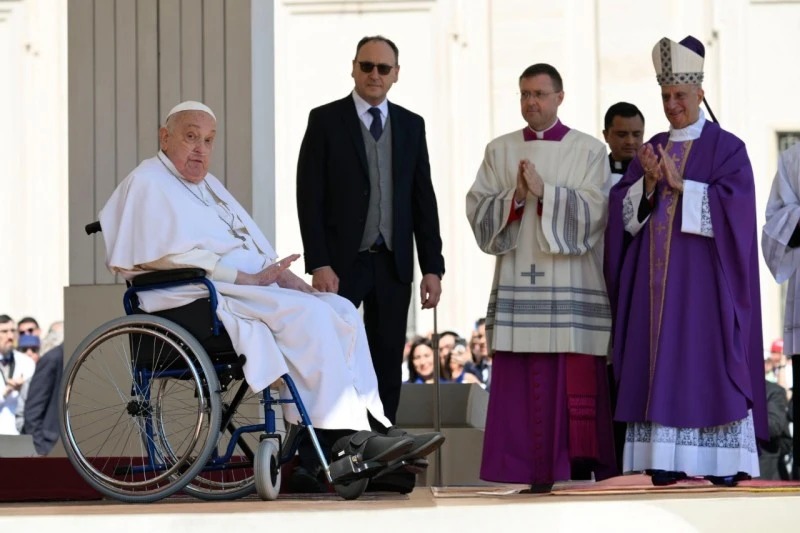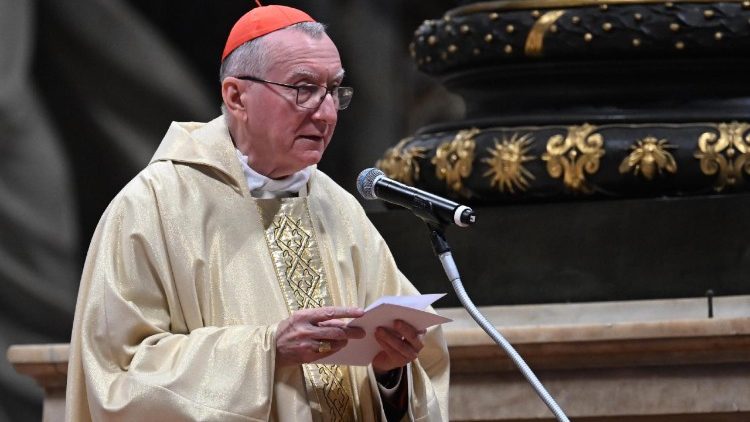Pope Stresses Importance of Culture of Inclusion and Belonging
Address Of Pope Francis To Members Of The Italian Autism Foundation On World Autism Awareness Day

Pope Francis today stressed the importance of a culture of inclusion and belonging.
His comments came in an address to members of the Italian Autism Foundation on the occasion of World Autism Awareness Day.
“Dear brothers and sisters, the Gospel parable of the good Samaritan (cf. Lk 10: 25-37) shows the way to a more fraternal society (cf. Encyclical Fratelli tutti, chapter II),” the Pope pointed out. “And on this road, people with disabilities are not only the object of care but also an agent – this is very important! The Samaritan may be the same person with disabilities, with autism, who makes him- or herself close to others, placing his or her talents at the service of the community.”
The United Nations General Assembly unanimously declared 2 April as World Autism Awareness Day to highlight the need to help improve the quality of life of those with autism so they can lead full and meaningful lives as an integral part of society.
Autism is a lifelong neurological condition that manifests during early childhood, irrespective of gender, race, or socio-economic status. The term Autism Spectrum refers to a range of characteristics. Appropriate support, accommodation, and acceptance of this neurological variation allow those on the Spectrum to enjoy equal opportunity, and full and effective participation in society.
Autism is mainly characterized by its unique social interactions, non-standard ways of learning, keen interests in specific subjects, inclination to routines, challenges in typical communications, and particular ways of processing sensory information.
The rate of autism in all regions of the world is high and the lack of understanding has a tremendous impact on individuals, their families, and communities.
The stigmatization and discrimination associated with neurological differences remain substantial obstacles to diagnosis and therapies, an issue that must be addressed by both public policy-makers in developing nations, as well as donor countries.
Following is the Holy Father’s full address, provided by the Vatican:
Dear brothers and sisters, good morning and welcome!
I thank the President of the Italian Autism Foundation for his words of introduction and the young man who brought his testimony, offering many insights to reflect upon.
Tomorrow is World Autism Awareness Day, instituted by the United Nations to recall throughout the world the attention due to people with autism and the various aspects of their condition.
First and foremost, I express my appreciation for the work carried out by the Italian Autism Foundation. You involve researchers, doctors, psychologists, family entities, and associations, which since 2015 have had as their common objective the promotion of a culture in favor of people on the autism spectrum and with intellectual disabilities. Today, more than ever, the themes and issues your Foundation faces are of vital importance. Indeed, by carrying out research and initiatives in favor of the weakest and most disadvantaged, you make a valid contribution to the throwaway culture (cf. Apostolic Exhortation Evangelii Gaudium, 53), which is so widespread in our society that is too intent on competition and profit. We are victims of this throwaway culture.
I would like to take this opportunity to share with you some points for reflection and engagement.
1. The culture of inclusion and belonging, as opposed to the throwaway culture. Disability, in any form, represents a challenge and an opportunity to build together a more inclusive and civil society, where family members, teachers, and associations such as yours are not abandoned but are supported. For this reason, it is necessary to continue to raise awareness of various aspects of the disability, dismantling prejudices and promoting a culture of inclusion and belonging, based on the dignity of the person. It is the dignity of all the most fragile and vulnerable men and women, too often marginalized as they are labeled as different or even useless, whereas in reality, they are a great wealth for society. Indeed, one is positively surprised to discover many cases of people with disabilities who have good experience in the workplace – like some of you present here – thus offering meaningful witness to all of us. But there is not only the sphere of work, there is the entire life of the person: we might say, his or her “vocation”. Think of the example of Saint Margaret of Città del Castello, the young woman with disabilities who placed her life in the hands of the Lord to dedicate herself fully to prayer and assistance of the poor.
Dear brothers and sisters, the Gospel parable of the good Samaritan (cf. Lk 10: 25-37) shows the way to a more fraternal society (cf. Encyclical Fratelli tutti, chapter II). And on this road, people with disabilities are not only the object of care but also an agent – this is very important! The Samaritan may be the same person with disabilities, with autism, who makes him- or herself close to others, placing his or her talents at the service of the community.
2. Participation. An essential aspect of the culture of inclusion is the possibility for people with disabilities to participate actively. Not to be shut away, no, to participate. Placing them at the center means, besides breaking down physical barriers, also ensuring they can take part in the initiatives of the civil and ecclesial community, giving their contribution. To this end, it is a question of supporting their life project through access to education, to employment, and to the leisure sphere, in which they can socialize and express their creativity. This requires a change in mentality. Major steps have been taken in this direction, but prejudices, inequalities and even discrimination still remain. I hope that disabled people themselves may increasingly become agents of this change, as you have shown by collaborating together, civil and ecclesial institutions.
3. Networking. The Covid-19 pandemic has had a very serious impact, especially on the most fragile, the elderly, people with disabilities, and their families. Then, in recent weeks, the tragedy of the war in Ukraine has been added to this: think of how many are more disadvantaged… Dear brothers and sisters, in this situation, our response must be solidarity, forming a network. Solidarity in prayer and solidarity in charity, that becomes real sharing. Faced with so many wounds, especially in the most vulnerable, we must not squander the opportunity to support each other (cf. Apostolic Exhortation Evangelii Gaudium). Let us take responsibility for human suffering with projects and proposals that put the smallest at the center (cf. Mt 25:40).
In the area of disability too, the ecclesial and civil communities are required to work as a network, to collaborate harmoniously to help the weakest and most disadvantaged to make their voices heard. In this way, subsidiarity is implemented and the contribution of all those who have been working for people with disabilities for some time is valued, creating a wide and diversified range of support. By setting aside competitive attitudes, an effective synergy can be created that can have a profound impact on society.
4. For an economy of solidarity. Just as there is a throwaway culture and another of inclusion, there is also an economy that discards and an economy that includes. And this is an everyday occurrence: there is rejection and inclusion, in all of life, even in the economy. From time immemorial, starting with the first Christian community in Jerusalem, through many and varied experiences, the Gospel has inspired us to put fraternity at the center of the economy, so that the poor, the marginalized, and people with disabilities are not excluded. Put fraternity at the center of the economy; not selfishness, not personal profit, fraternity. The work you do through the Italian Autism Foundation also needs economic support. For this reason, my gratitude also goes to your benefactors, who, by allocating resources for the benefit of their neighbors, are builders of a more supportive, inclusive, and fraternal society. This, too, is a concrete way of creating an economy of solidarity.
Dear brothers and sisters, we are going through hard times, but the approaching Easter is a reminder that death does not have the last word. Together with our most fragile brothers and sisters, let us keep the torch of hope burning!
I encourage you to continue your work by walking alongside people with autism: not just for them, but first and foremost with them. You know this well, and today too you wish to express it with a gesture: soon, in Saint Peter’s Square, some people with autism will cook and offer lunch to their poor brothers and sisters. This is beautiful! An initiative that bears witness to the style of the Good Samaritan, the style of God. What is the style of God like? Proximity, compassion, tenderness. With these three traits, we see the face of God, the heart of God, the style of God.
I bless you from my heart. May Our Lady protect you, for she is Mother and understands these things: she is better than we are! And please do not forget to pray for me. Thank you!
© Libreria Editrice Vatican
Related

The Pope: In convalescence, I feel the “finger of God” and experience his loving caress
Exaudi Staff
06 April, 2025
2 min

The experience of illness, a school in which we learn every day to love and to allow ourselves to be loved
Exaudi Staff
06 April, 2025
6 min

Francis is gradually improving: signs of recovery at the Vatican
Exaudi Staff
04 April, 2025
1 min

John Paul II: The Tireless Pilgrim Who Continues to Inspire the World
Exaudi Staff
03 April, 2025
2 min
 (EN)
(EN)
 (ES)
(ES)
 (IT)
(IT)

